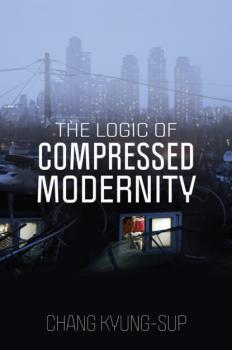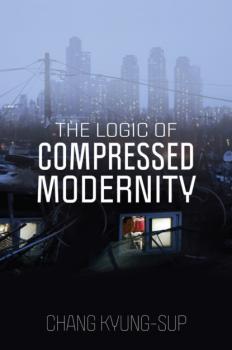ТОП просматриваемых книг сайта:
John Wiley & Sons Limited
Все книги издательства John Wiley & Sons LimitedАннотация
ARTIFICIAL INTELLIGENCE AND QUANTUM COMPUTING FOR ADVANCED WIRELESS NETWORKS A practical overview of the implementation of artificial intelligence and quantum computing technology in large-scale communication networks Increasingly dense and flexible wireless networks require the use of artificial intelligence (AI) for planning network deployment, optimization, and dynamic control. Machine learning algorithms are now often used to predict traffic and network state in order to reserve resources for smooth communication with high reliability and low latency. In Artificial Intelligence and Quantum Computing for Advanced Wireless Networks , the authors deliver a practical and timely review of AI-based learning algorithms, with several case studies in both Python and R. The book discusses the game-theory-based learning algorithms used in decision making, along with various specific applications in wireless networks, like channel, network state, and traffic prediction. Additional chapters include Fundamentals of ML, Artificial Neural Networks (NN), Explainable and Graph NN, Learning Equilibria and Games, AI Algorithms in Networks, Fundamentals of Quantum Communications, Quantum Channel, Information Theory and Error Correction, Quantum Optimization Theory, and Quantum Internet, to name a few. The authors offer readers an intuitive and accessible path from basic topics on machine learning through advanced concepts and techniques in quantum networks. Readers will benefit from: A thorough introduction to the fundamentals of machine learning algorithms, including linear and logistic regression, decision trees, random forests, bagging, boosting, and support vector machines An exploration of artificial neural networks, including multilayer neural networks, training and backpropagation, FIR architecture spatial-temporal representations, quantum ML, quantum information theory, fundamentals of quantum internet, and more Discussions of explainable neural networks and XAI Examinations of graph neural networks, including learning algorithms and linear and nonlinear GNNs in both classical and quantum computing technology Perfect for network engineers, researchers, and graduate and masters students in computer science and electrical engineering, Artificial Intelligence and Quantum Computing for Advanced Wireless Networks is also an indispensable resource for IT support staff, along with policymakers and regulators who work in technology.
Аннотация
Explore the cutting-edge in self-healing polymers and composites In Extrinsic and Intrinsic Approaches to Self-Healing Polymers and Polymer Composites, a pair of distinguished materials scientists delivers an insightful and up-to-date exploration of the fundamentals, theory, design, fabrication, characterization, and application of self-healing polymers and polymer composites. The book discusses how to prepare self-healing polymeric materials, how to increase the speed of crack repair, high temperature applications, and how to broaden the spectrum of healing agent species. The authors emphasize the integration of existing techniques with novel synthetic approaches for target-oriented materials design and fabrication. They provide a comprehensive view of this emerging field, allowing new researchers to gather a firm understanding of the framework for creating new materials or applications. Additionally, the book includes: A thorough introduction to the field of self-healing polymers and polymer composites, including the advances made by various laboratories and the challenges, trends, and future directions that characterize modern research in the area Comprehensive explorations of the self-healing strategies proposed by the authors, including addition polymerization, systems-based microcapsules and plastic tubes, and more Practical discussions of the application of reversible S-S bonds in self-healing polymers In-depth examinations of intrinsic self-healing via reversible C-ON bonds Perfect for polymer and materials scientists, chemists, and engineers, Extrinsic and Intrinsic Approaches to Self-Healing Polymers and Polymer Composites will also earn a place in the libraries of professionals working in the polymer, coatings, paints, medical, defense, and pharmaceutical industries.
Аннотация
A fast-paced, useful, and easy introduction to Microsoft 365 For those who need the show as well as the tell , Teach Yourself VISUALLY Microsoft 365 is the visual walkthrough to Microsoft’s latest suite of office products that will get you up-to-speed faster than any other resource on the market. This book offers image- and screenshot-rich tutorials alongside step-by-step instructions so you can see what you need to do to make the most of Microsoft 365. From getting a grip on the most basic Microsoft 365 functions to the advanced, new features known only by power users, the book provides you with the tools you need to make your work more streamlined and efficient. You’ll also get: Up to date—and visually supported—guidance on the major Office apps that are part of Microsoft 365: Word, Excel, PowerPoint, Outlook, and Access Full-color, two-page tutorials that get you up and running fast Easy-to-read instructions and stepwise advice to accompany the informative and crystal-clear imagesIdeal for people using Microsoft 365 for the very first time, Teach Yourself VISUALLY Microsoft 365 is also a can’t-miss resource for long-time users of the software suite who need an introduction to the latest version and Office veterans seeking a refresher on what Microsoft 365 is capable of.
Аннотация
Most theories of modernity are based, explicitly or implicitly, on the development of Western societies since the late medieval period, but these theories are of limited value for understanding the development of societies in Asia and other parts of the world, where the process of modernization took place under different circumstances and often in a rapid and highly compressed fashion – not over centuries but in decades. Asian societies have been propelled into modernity too, but theirs is a compressed modernity, which displays very different traits. In this important book, Chang Kyung-Sup provides a systematic account of this compressed modernity and uses it to analyse the extreme social changes, complexities and imbalances found in South Korea and other East Asian societies. While these changes enabled South Korea to modernize very quickly and achieve high levels of economic growth, they also created a society that is haunted by various developmental and civilizational costs, such as endemic generational conflicts, overloaded family responsibilities and exceptionally high suicide rates. As with other societies that have experienced compressed modernity, the South Korean “miracle” is replete with extreme and contradictory social traits. This pioneering work of the nature and consequences of compressed modernity will be of great interest to students and scholars of sociology, politics and development studies, as well as anyone interested in South Korea, Asia and postcolonial societies.
Аннотация
Аннотация
A unique and incisive exploration of the place and nature of friendship in both its personal and civic dimensions In Towards Friendship-Shaped Communities: A Practical Theology of Friendship , distinguished theological researcher Anne-Marie Ellithorpe delivers a constructive and insightful exploration of the place and nature of friendship as innate to being human, to the human vocation, and to life within the broader community. Of particular interest to members and leaders of faith communities, this book responds to contemporary concerns regarding relationality and offers a comprehensive theology of friendship. The author provides an inclusive and interdisciplinary study that brings previous traditions and texts into dialogue with contemporary contexts and concerns, including examples from Indigenous and Euro-Western cultures. Readers will reflect on the theology of friendship and the interrelationship between friendship and community, think critically about their own social and theological imagination, and develop an integrative approach to theological reflection that draws on Don Browning’s Fundamental Practical Theology . Integrating philosophical, anthropological, and theological perspectives on the study of friendship, this book presents: A thorough introduction to contemporary questions on friendship and discussions of co-existing friendship worlds Comprehensive explorations of friendship in first and second testament writings, as well as friendship within classical and Christian traditions Practical discussions of theology, friendship, and the social imagination, including explorations of mutuality and spirit-shaped friendships Considerations for outworking friendship ideals within communities of practice, from the perspective of strategic (or fully) practical theology Perfect for graduate and advanced undergraduate students taking courses on friendship or practical theology, Towards Friendship-Shaped Communities: A Practical Theology of Friendship will also earn a place in the libraries of scholars of practical theology and community practitioners, including ministers, priests, pastors, spiritual advisors, and counselors.
Аннотация
Christianity is often assumed to be pro-capitalist and socially conservative – in short, necessarily aligned with the political Right. But can this be straightforwardly true of a religion founded by a figure who drew his early followers from among the poor and downtrodden and spoke against the accumulation of earthly riches? In this book, Anthony A.J. Williams shows that this assumption is far from correct by giving an introductory overview of a tradition of socialist and radical Christianity that can be traced back to the communal ownership described in the Acts of the Apostles. Focusing on modern Christian Left movements, from Christian Socialism and the social gospel to liberation theology and red-letter Christianity, Williams examines the major challenges faced by the Christian Left today, both from within Christianity itself and from the secular Left. Does the Bible and Christian theology really support collectivism and universal equality? Can Christian radicalism remain viable in an age of identity politics? This book is essential reading for anyone interested in the relationship between religion and politics.










